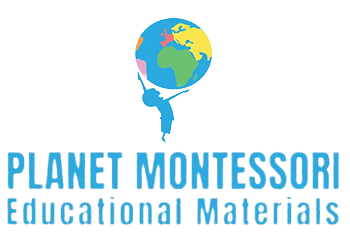- Planet Montessori
- News and Updates
- 0 likes
- 651 views
- 0 comments
- Montessori cebu, Montessori training, Montessori Education, montessori manila
Montessori materials play a crucial role in helping children learn and develop essential skills. These materials are specially designed to engage young minds and promote hands-on learning in a structured yet flexible environment.
What Are Montessori Materials?
They are educational tools that were developed by Dr. Maria Montessori, an Italian physician and educator, in the early 20th century. These materials are designed to be used in a Montessori classroom, where children are encouraged to explore and learn at their own pace. The materials are carefully crafted to be hands-on, interactive, and engaging, allowing children to develop important skills such as motor skills, cognitive skills, and social skills.
The main purpose of using Montessori materials is to provide children with a hands-on learning experience that promotes independence, critical thinking, and problem-solving skills. One of its key characteristics is its sensory appeal. Many of these materials are made from natural materials such as wood, metal, and cloth, which appeal to children's senses and stimulate their curiosity.
Another crucial purpose is to promote the development of concentration and focus in children. The materials are designed to capture the child’s attention and keep them engaged in a task for an extended period. This helps children to develop the ability to concentrate, a skill that is crucial for academic success.
Why Are Montessori Materials Important?
It plays a crucial role in the Montessori Method of education, which emphasizes independence, freedom within limits, and respect for the child. These materials are carefully selected to meet the developmental needs of children at each stage of their growth, from infancy to adolescence. By using these materials, educators can create a supportive and stimulating learning environment that promotes exploration, discovery, and creativity.
One of the key reasons why Montessori materials are important is that they are designed to promote hands-on learning. Research has shown that children learn best through direct experience and interaction with their environment. It provides children with the opportunity to manipulate objects, solve problems, and explore concepts in a concrete and tangible way, leading to a deeper understanding of the subject matter.
Benefits of Montessori Materials
- Promote independence: It allows children to work independently and at their own pace, fostering a sense of autonomy and self-reliance.
- Encourage exploration: By providing children with hands-on materials, educators encourage them to explore and discover new concepts in a meaningful way.
- Foster creativity: Montessori materials are open-ended and allow for multiple ways of exploration, sparking creativity and innovation in young minds.
- Develop critical thinking skills: Through hands-on learning experiences, children develop problem-solving skills, logical reasoning, and critical thinking abilities.
In conclusion, its purpose goes beyond just teaching academic concepts. These materials are an integral part of the Montessori Method, providing children with a holistic learning experience that promotes independence, concentration, problem-solving skills, and a love for learning. They are carefully designed to cater to the individual needs and learning styles of children, making them an essential tool in the success of the Montessori approach.
To explore more about the Montessori materials, click this to view the materials.
For more information, message us here or contact us at 09157585248 or (032) 316 5286.

Comments (0)